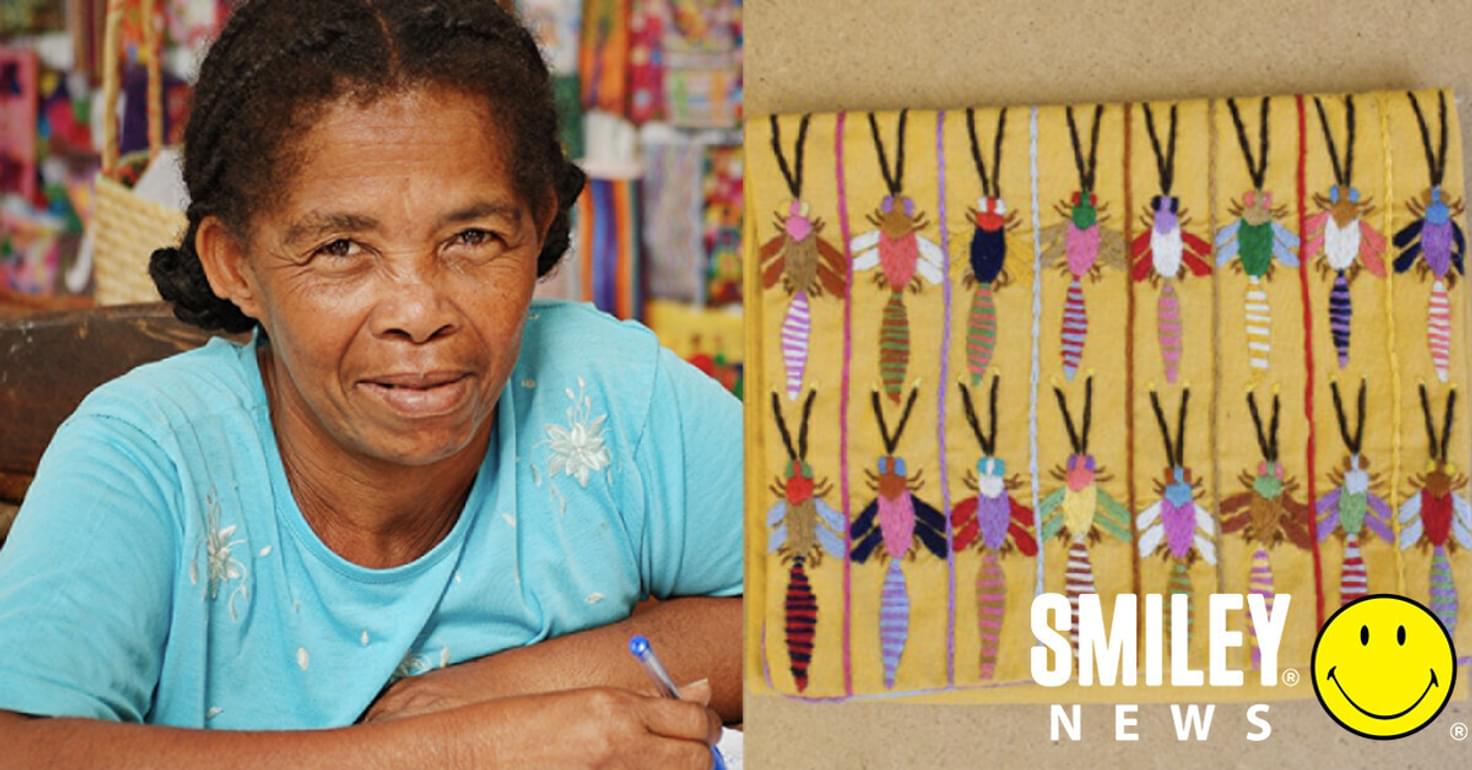
Words by Smiley Team
In Madagascar, a country with some of the highest poverty rates in the world, almost 80% of the population lives on less than $1.90 per day – and coronavirus has had a devastating effect.
One initiative hoping to change that is Stitch Sainte Luce, a women’s cooperative, supported by the charity SEED Madagascar. It has taught embroidery, as well as business skills in maths, sales and English language, to women so they can produce and sell the products to help bring an income to families.
But Stitch Sainte Luce has actually brought much more than an income stream to the women involved in the project. The craft skills they have learnt have also helped to empower them and given them hope for the future.
[Read More: The 'slow fashion' brand that helps Peruvian women]
The women have always been encouraged to develop their own style, rather than being pushed towards Western designs, helping to build their self-confidence and allowing them to progress as artists. “The studio is a place where we can be together as friends – we work together, we talk together, and we laugh together,” one woman who works there, named Esterline, says. “We need that in our lives.”
Each of the products produced by Stitch Sainte Luce is one of a kind and every item is unique. Rebecca Dallimore, corporate liaison officer SEED Madagascar, explains that the Cooperative started as a charity project back in 2012.
The local NGO – SEED Madagascar – set up a small-scale training programme to teach women to embroider to generate additional income for their households, supporting that of their predominantly lobster-fishing husbands. It’s been going ever since.
[Read More: How Smile Train brings joy to children worldwide]
“Every Stitch item has the name of the embroiderer who has made the piece stitched inside,” explains Rebecca.
“All of the money made from Stitch products goes directly back to the project, and to the woman who made the item. The additional income from this has enabled the embroiderers to buy extra food, pay for education and school supplies for their children (in a region where over half of primary age children never attend school), and to access healthcare. These women are part of a strong community and therefore the benefits of their Stitch work has reached far beyond their own families over the years.”
There are currently 96 members of the Stitch Cooperative. The first training class was just 12, since then the successes of Stitch have encouraged many more women in the community to join.
“Right now, with the current food crisis in Madagascar, the income from Stitch is a lifeline for the women,” says Rebecca.
“However, aside from buying products, we would love for more people to learn about Stitch so sharing our story, our Instagram profile or website is a great way to help us.”
View the Stitch shop products here to support. You can also view their creations on Instagram.